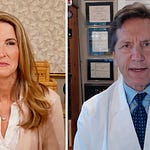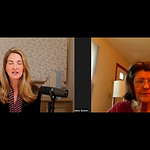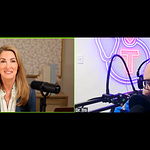A groundbreaking statement from FDA Commissioner Marty Makary during a recent press conference—“Autism can be prevented”—has ignited hope and urgency for reform. This acknowledgment, coupled with insights from Dr. Toby Rogers and others, challenges long-standing narratives and underscores the need to address environmental toxicants, particularly vaccines, as potential contributors to the autism epidemic.
Dr. Rogers, a fellow at Brownstone, has conducted a systematic review of over 1,100 autism causation studies, revealing a critical flaw: the vast majority fail to account for vaccination status. This omission renders many studies unreliable, as they cannot isolate vaccines as a potential risk factor. Rogers highlights that 22 studies claiming vaccines do not cause autism lack unvaccinated control groups, while 500 genetic studies are equally flawed, as the human genome cannot change rapidly enough to explain the 32,158% increase in autism prevalence since 1970—from 1 in 10,000 to 1 in 31 children today. Epigenetic studies, examining interactions between toxicants and the genome, also fall short by ignoring vaccines as a confounder, a choice Rogers attributes to researchers’ fear of challenging the pharmaceutical industry.
In contrast, six robust studies, including those by Gallagher, Goodman, Mawson, and Hooker and Miller, demonstrate a significant correlation between vaccines—particularly the hepatitis B vaccine—and increased autism risk. These findings align with the FDA Commissioner’s statement, which implies that autism is caused by toxicants, not solely genetics. NIH Director Jay Bhattacharya further reinforced this shift by acknowledging that the autism surge cannot be attributed to genetic factors alone, marking a historic departure from the narrative championed by figures like Peter Hotez, who emphasize genetics over environmental triggers.
The September ACIP meeting, while primarily focused on COVID shots, also touched on broader vaccine policy reforms. The decision to move away from universal COVID shot recommendations, leaving choices to patients and doctors, reflects a nod toward informed consent. However, doctors dismissed adverse reactions during the pandemic, and the ensuing public distrust extends to autism research, where patients with vaccine-related injuries are often gaslit by healthcare providers.
The acknowledgment that “autism can be prevented” opens the door to actionable reforms. Proposals include moving the hepatitis B vaccine to age 12, administering MMR as separate shots, limiting one vaccine per visit, and removing mercury and aluminum from vaccines. These changes aim to reduce toxicant exposure and prioritize patient safety. Additionally, emerging treatments like leucovorin (folinic acid) show promise in alleviating autism symptoms, offering hope to families.
This paradigm shift demands urgent action: ban toxicants, update cancer and autism data (with the CDC’s last real data from 2022), and remove liability protections for vaccine manufacturers to ensure accountability. By addressing vaccines as a potential toxicant and prioritizing rigorous, transparent research, the medical community can move toward preventing autism and restoring public trust.












